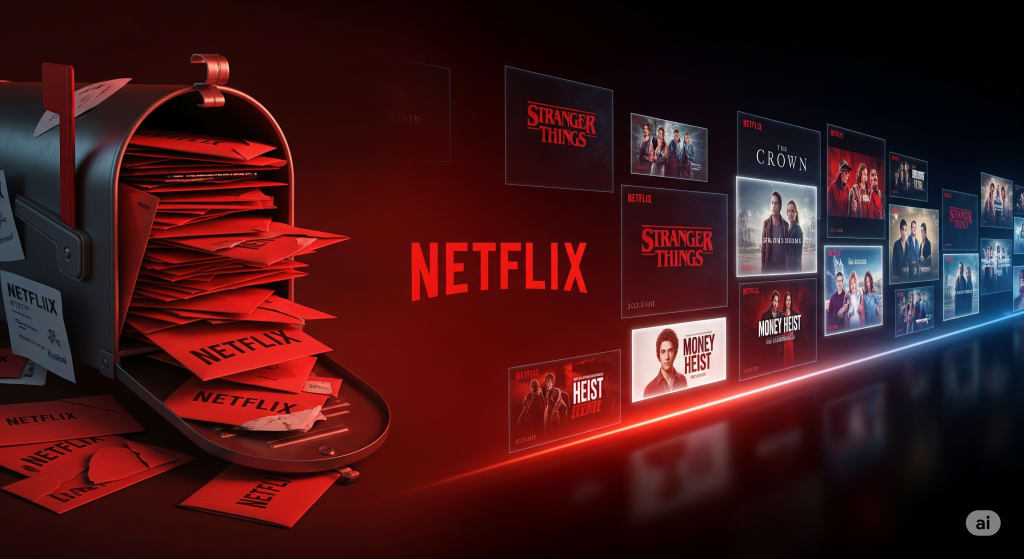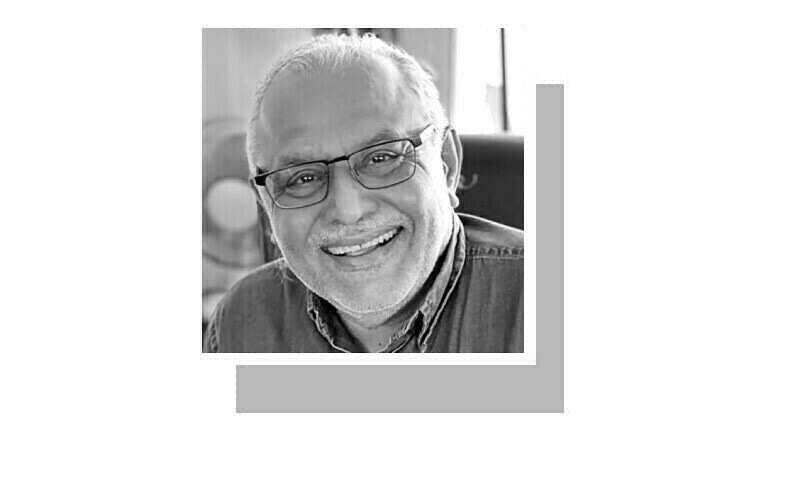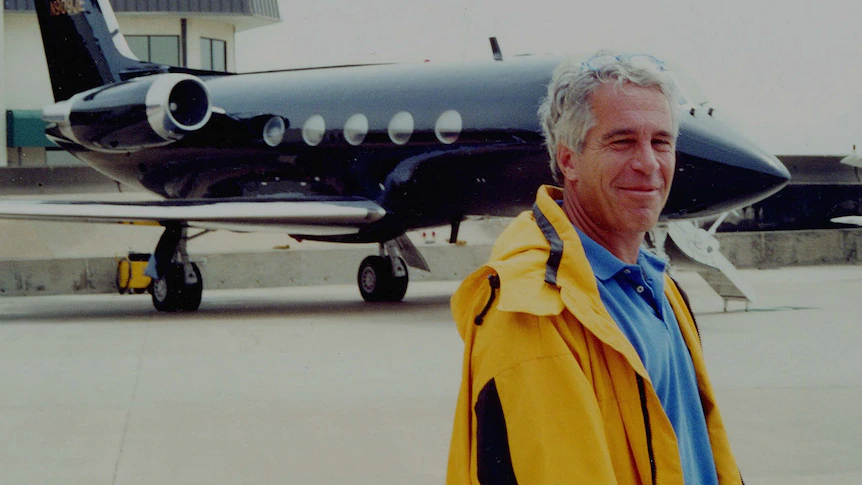By Aida Haidar,Fatima Kemelova
Copyright astanatimes

Can you imagine being a Netflix subscriber for almost 17 years back when it was just mail-order DVDs in Northern California where I lived in my 20s and then meeting its cofounder Marc Randolph in person? The feeling is hard to put into words. At the InMerge Summit in Baku on Sept. 30, I had the chance to have a short chat with Randolph after he delivered a powerhouse keynote alongside leaders from OpenAI and Pixar, where he spoke a lot about innovation and the mindset behind it.
One of the reasons I love being a journalist is that, in a world where people are often afraid to ask questions worried they might sound dumb, my profession allows me to be exactly that: unknowing, curious, sometimes asking the “dumbest” questions just to understand. Then I get to turn those answers into stories people can digest.
So I asked him a question that resonates across Central Eurasia: why does innovation struggle to take root here? In this region, entrepreneurs aren’t just battling market forces; they’re battling culture. Families, friends, even governments tend to fear failure. Reputation matters more than risk. That makes risk-taking nearly impossible.
And yet, it’s not all bleak. Countries like Azerbaijan and Kazakhstan are ambitious, loudly declaring their intent to become hubs of innovation. That’s the beauty of having neighbors with big dreams: we can support each other, but we also keep each other on our toes, never letting ourselves relax. Ambition is contagious, and in this part of the world, that’s exactly what we need.
But ambition alone won’t make innovation happen. You can dream big and push each other forward, but without the right mindset and a culture that tolerates risk, even the boldest goals can stall. That’s where Randolph’s perspective becomes so instructive. He agreed: innovation is cultural, and not every culture accepts risk the same way. Yet, according to him, one of the most important ingredients in doing something new, whether it’s Netflix or anything else, is figuring out how to take small steps.
“Innovation doesn’t come from one big idea where you spend lots of time and money and it either works or doesn’t. It comes from very small steps. Especially if you’re in a part of the world, or an industry, not used to risk-taking. I tell early-stage entrepreneurs all the time: don’t raise money. Don’t quit your job. Don’t drop out of school. Find ways to take small, incremental steps. That’s how I started. That’s what I think everyone should do, especially if people in Kazakhstan are trying to start companies,” he said to me during our conversation.
Changing culture will take a long time. But as Randolph suggested, doing it in small steps makes it both easier and more realistic. For him, innovation is about building a culture of trying lots of bad ideas. That’s what shaped not just Netflix, but Silicon Valley itself. In his keynote, he stressed the importance of simply having ideas – any ideas. Debating whether an idea is good or bad, he said, is a waste of time.
“It doesn’t need to be complicated. The Post-it note? Just a piece of paper. And yet it makes more than a billion dollars a year. And I’ll go out on a limb and say it doesn’t even need to be a good idea. Because what is a good idea? Why is it so hard to tell?” he said.
He told the audience how, when he first shared what became Netflix, his wife thought it was the stupidest thing she’d ever heard. And that’s the point: sometimes the ideas we’re sure will work fail, and the ones we dismiss succeed. Randolph quoted Hollywood screenwriter William Goldman, who famously said: Nobody knows anything.
“You can have A-list stars, an award-winning director, a perfect script, a $100 million budget and still have a flop. Or you can have a first-time director, amateur actors, no script at all, and end up with The Blair Witch Project, which cost $35,000 and made $250 million. Why? Because nobody knows anything. That’s true in Hollywood, but also true anywhere people are trying things that haven’t been done before,” he said.
Randolph himself lived this. After Netflix, he started seven companies. Two became multi-billion-dollar successes, three had IPOs, and one was a total failure.
“And if you had asked me on day one which would be which, I could never have told you. Neither could anybody else. Because truly, nobody knows anything,” he said.
That line resonated with me. Because when you internalize it, you’re freed from expectation. You stop fearing whether an idea will work or not, you just try. It made me reflect on myself. I used to pride myself, especially as a child, on being hyper-organized and punctual. My father encouraged it, and I would brag to my sisters about how well I balanced school, chores, and activities. I lived by some sort of business plan. But once I entered the real world, where results don’t come instantly, I realized that rigid approach was making me miserable. That’s why Randolph’s words about business plans being the biggest waste of time resonated. Because, as he said, even the most perfect plan collapses when it meets real life.
In our culture, planning is everything. But for innovators, that mindset is deadly. Innovation means leaping into the unknown without expectations: good or bad. Can you imagine living that way?
“The innovator’s job is to find quick, cheap, easy ways to test ideas,” Randolph said.
And where do ideas come from? According to him, from pain. The very thing we spend our lives avoiding. We chase perfection – no flaws, no discomfort. But pain is where the opportunity lies.
“You need to look for pain. Train yourself to see the world as imperfect. Look for problems: yours, your customers’, your business’s. Once you see what doesn’t feel right, ideas will follow,” he said.
Netflix itself was born out of pain. Randolph and Reed Hastings sat in a warehouse surrounded by 100,000 DVDs gathering dust. Late fees and due dates made everything worse. Out of that frustration came the “ridiculous” idea: let customers keep DVDs as long as they want, no due dates, no late fees. Charge one flat monthly fee. Watch as much as you want. It sounded crazy. But it worked. People loved it. No one canceled. The company took off. That was the moment Netflix stopped being a startup and became a real company. And yet, as Randolph reminded the audience, that winning idea was probably the 500th “bad” idea they had tested. It took a year and a half to stumble on it. And that’s the real lesson. By simplifying the painful parts, for themselves and their customers, Randolph and Hastings built what Netflix is today.
That’s also why I love my job. It forces me to learn through other people’s experiences. It teaches me about life more than anything else could. But it also requires me to stay open-minded, like an innovator: with no expectation of outcome. So if I can apply this mindset when producing a YouTube report or writing an article, why not apply it to my life?
Innovation isn’t just for Silicon Valley. It belongs everywhere, even in the way we live. So remind yourself from time to time: I am an innovator. I have the right to fail, and the right to succeed – whichever comes first. I’ll be doing it too.



